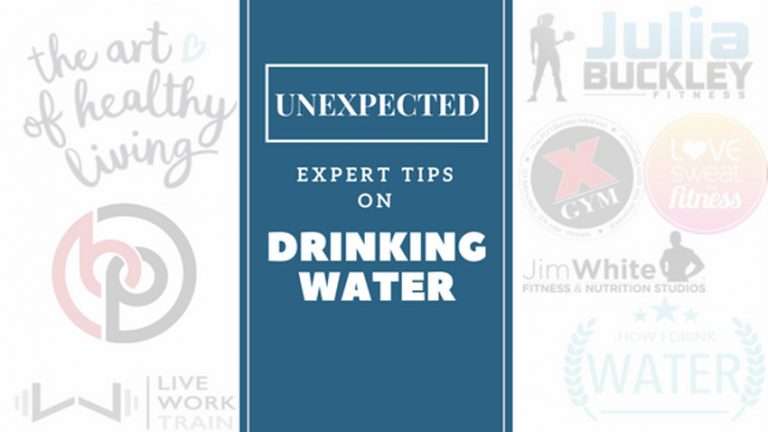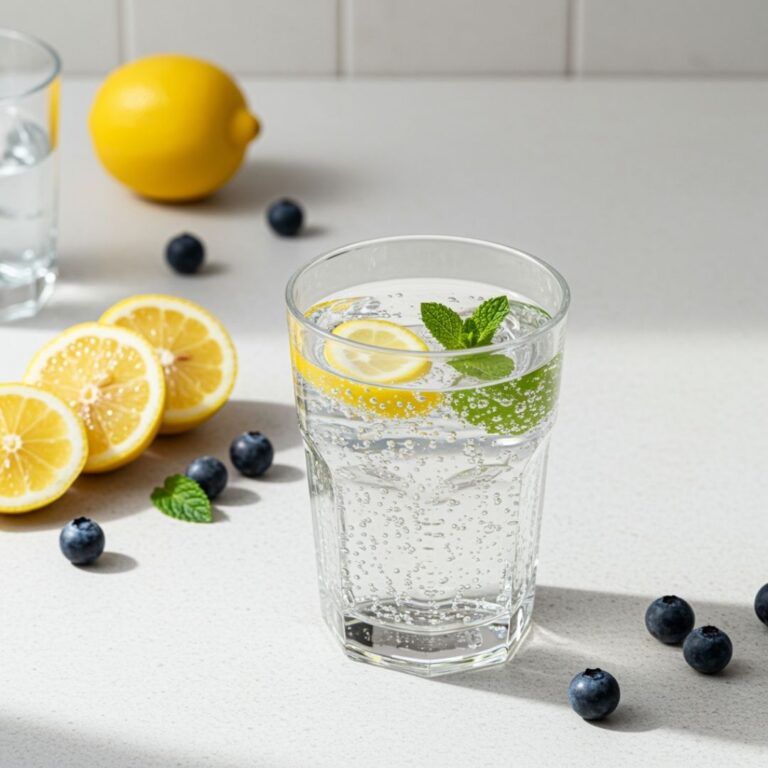Water Hydration And Health: Drinking Water Reduces Healthcare Costs?
Water Hydration And Health – guest post written by Ashley Lipman
= = = = = = = = =
Is water hydration and health related? To many Americans, the steep costs of healthcare and of health insurance are a major concern.
You can certainly shop for smart, affordable health plans like Medicare Advantage (and click this link to learn more on that: https://www.healthmarkets.com/content/affordable-health-insurance-companies?) but staying healthier to begin with is also a huge factor.
Living an active lifestyle, getting a good night’s sleep consistently to keep your “circadian rhythms” in sync, and avoiding a high-sugar, high-fat, high artificial ingredient diet will all play their part.
But there is one big piece of the healthcare cost puzzle that often gets overlooked: drinking more water.
Your body is 70% water, so in a very real sense: you are what you drink. And your brain is 90% water content, which means even alert, focused thinking habits are partially water-dependent.
But as to direct health benefits that lead directly to less medical intervention and lower healthcare costs, here are 10 key ways drinking more water can help you:
1. Water Helps You Exercise More
Good exercise is essential to optimal health. But you can lose as much as 5% to 10% of your water weight in sweat during an intense workout, which leads to exhaustion and early quitting all too often.
Drink enough water each day (calculate the right amount first), and you will find that exercise doesn’t feel as exhausting as quickly, which makes it more likely you’ll do it more and stay healthier.
2. Water Helps You Lose Weight
Although the sheer weight of water causes an immediate weight gain, the overall and long-term effect of drinking plenty of water is typically weight loss.
Here’s why. Water makes you feel full (especially drunk just before a meal), while also raising your metabolism. Thus, water can make you tend to intake fewer calories and burn more: that equals weight loss.
And two other strategies to help: drink water cold so your body has to burn calories to raise it to normal body temperature and mix in a little fresh squeezed lime juice (this also acts as a natural hunger suppressant.)
It’s no secret that being overweight or obese is a major problem today and that it greatly increases the risks of needing expensive health care. So water’s ability to “fight the fat” in a 100% natural way is certainly welcome news.
3. Fluids Flush Out Body Toxins
Many chronic health conditions, and certainly a weak immune system, are associated with high levels of built-up body toxins that linger in your system for years on end.
But beyond that, toxins need to go because they can do things like kill off beneficial “gut bacteria” that aid in normal digestion, make it more difficult for oxygen to bind to red blood cells, interfere with important body enzymes, and decrease the absorption rates of nutrients.
Regularly rid yourself of harmful toxins by high water circulation rates via intake and release (in sweat and urine), and you minimize the risks.
4. Reduce the Risk of UTI and Kidney Stones
There is evidence from numerous studies to support the claim that drinking sufficient quantities of water will reduce your risks of UTI, or at least, the severity of the UTI if you do still get it.
And studies also seem to show a connection between drinking more water and preventing the formation of kidney stones.
The higher volume of fluids moving through the kidneys make it harder for stones to crystallize or clump.
5. Water Can Bring Headache Relief
Many report that water-drinking has helped prevent or relieve painful headaches. Some even claim the same kind of water relief works on back aches.
The reason seems to be that dehydration is a major contributing cause of headaches and some other body pains. Migraines can even be alleviated in some cases.
How well water brings relief of headaches does vary from person to person, but if it works for you, you can avoid costly visits to the doctor for “prescription level” headache drugs.
6. Preventing Cramps and Sprains
Seeing the doctor to help you past painful leg cramps or ankle sprains can also be expensive.
But water is key to keeping your joints properly lubricated and keeping your muscles more flexible (muscle is 80% water). That means you are less likely to hurt yourself, or as badly, in a misstep or to cramp up after exercising.
7. Prevents Digestive and “Regularity” Problems
Water is key to good digestive health. It keeps things digesting quickly, more easily, and more fully. And it also keeps things “moving along.”
Constipation is not a pretty subject, but neither is it an unimportant problem.
Especially for the very young and the elderly, it can be a very serious matter (even life threatening) that calls for medical intervention on short notice if it’s severe enough that over the counter cures won’t work.
Also note that carbonated water seems to work especially well in this regard, though experts haven’t yet sorted out exactly why.
8. Improves Skin Health
Healthy, young-looking skin is something of a cosmetic concern, that’s true. Wrinkles aren’t going to make you get sick.
But if you would have spent money on anti-aging agents and visits to cosmeticians to boost your skin health, water can do much the same thing for a lot less out of your pocket.
9. A Healthier Immune System
Water has an overall beneficial effect on the immune system of the drinker. And this immune health boost makes you less likely to get everything from the common flu to cardiac disease to cancer.
And when you do come down sick, your consistently healthy (“well watered”) immune system will tend to help you recover more quickly.
10. Water Costs Less Than Other Drinks
It might not seem like the low cost of water has much to do with your health, at first glance.
But, think about it.
The money you save by drinking water instead of more expensive soft drinks and the like can be used to buy better health insurance or to pay for healthcare out of pocket.
But then again, you won’t need to spend as much on healthcare, because you’ve been drinking water.
= = = = = = = = =
Water Hydration and Health – Drinking Water CAN Reduce Healthcare Costs
(Conclusion written by Luke George – Aka Mr Water Geek)
Aside from drinking water for good health benefits, you should also pay very close attention to the quality and cleanliness of the water you drink.
Drinking unclean and unfiltered water can cause serious illness and thereby also increase your healthcare costs.
 The US has by far one of the most advanced sanitation systems in the world. Yet, despite this, there are millions of cases of waterborne diseases each year.
The US has by far one of the most advanced sanitation systems in the world. Yet, despite this, there are millions of cases of waterborne diseases each year.
The healthcare costs of these diseases are almost impossible to calculate.
The cost of each case of hospitalization and outpatient visit in the US is extremely high. And this doesn’t even bring into consideration the other secondary costs such as sick days.
This is unfortunate because being able to estimate the specific healthcare costs of waterborne illnesses may force higher standards of water cleanliness.
However, many of these costs can be eliminated by making sure you have fresh clean drinking water to start with. This is easy today with so many different types of water filters.
Staying hydrated with good quality clean water keeps your body healthy. And you should be paying attention to the quality of your liquid intake all the time.
The cleanliness of your water source has even more of an impact on your health if you have certain physical conditions. For instance, drinking contaminated water is a very big issue if you have a weak immune system.
There is no doubt that your body needs water to survive. In fact, there isn’t a part of your body that could properly function without a good amount of hydration.
Making sure this water is clean just as important to maintaining good health. The bottom line is to keep drinking clean fresh water and keep an eye out for the signs of dehydration.
Extended Scientific Bibliography
Agency for Healthcare and Research Quality . Prevention quality indicators technical specifications. AHRQ; Rockville, MD: 2010
Mead PS, et al. Food-related illness and death in the United States. Emerging Infectious Diseases. 1999;5:607–625
Vaerewijck MJ, et al. Mycobacteria in drinking water distribution systems: ecology and significance for human health. FEMS Microbiology Reviews. 2005;29:911–934
Gagnon F, et al. Risk of giardiasis associated with water supply in an endemic context. International Journal of Environmental Health Research. 2006;16:349–359.
Colford JM, Jr., et al. A review of household drinking water intervention trials and an approach to the estimation of endemic waterborne gastroenteritis in the United States. Journal of Water and Health. 2006;4(Suppl. 2):71–88.







